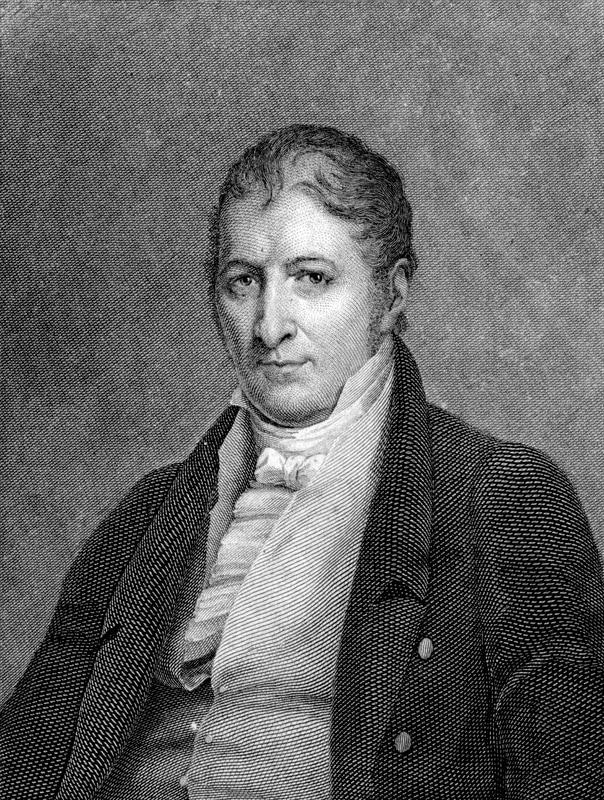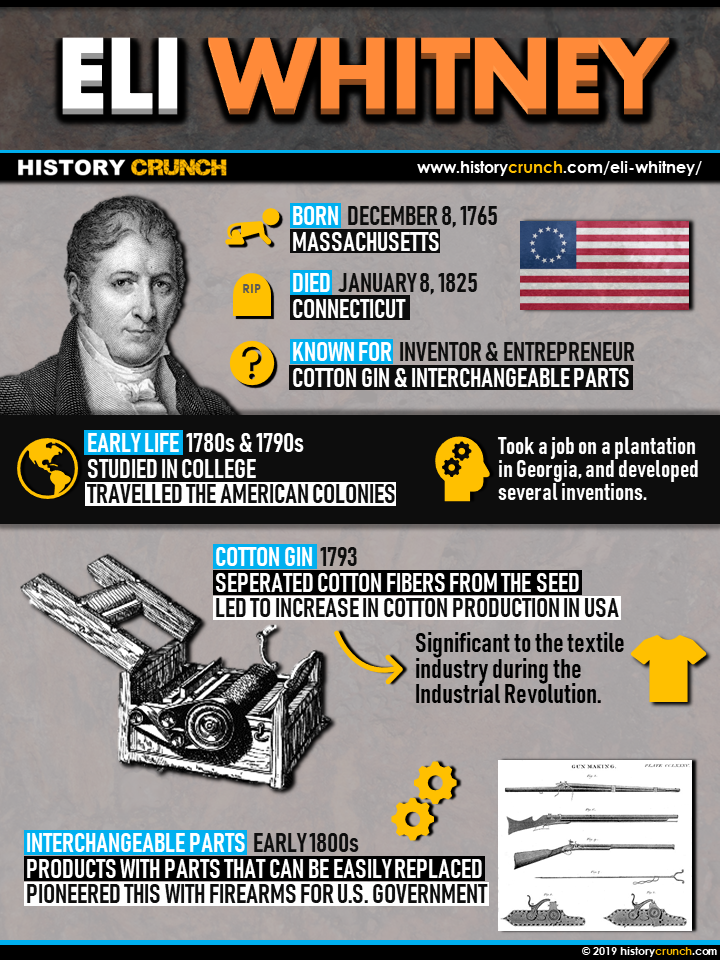ELI WHITNEY
|
Eli Whitney was an American inventor during the timeframe of the Industrial Revolution and is best remembered today for his invention of the cotton gin and the innovation of interchangeable parts. He was born on December 8th, 1765 in Massachusetts. His father was a successful farmer and his mother helped on the farm too, until she died in 1777 when Whitney was just 11 years old. After his mother’s death, Whitney was put in charge of a nail manufacturing operation, which allowed him to learn early industrial processes. During this time, the American Revolutionary War was occurring. Whitney was also hard working at school and attended college with the hope of pursuing a law degree at Yale University. However, short on money to fund his education he instead traveled and worked throughout the American Colonies as a farm laborer and school teacher. While enroute to South Carolina to work as a private tutor, he was convinced to instead go to Georgia and take work on a plantation there. He arrived in Georgia, where he met Phineas Miller, a plantation manager. The two eventually became business partners. Whitney worked on the plantation for a number of years and developed several inventions, for which he became famous.
|
Whitney was an inventor at heart, and when he visited the cotton plantations he realised the need for an improved machine for processing cotton. He developed the cotton gin. The cotton gin was a machine that could quickly separate cotton fibers from seeds in order to create cotton items such as clothing and linens. Before the invention of the cotton gin, cotton production and processing was a very slow process, requiring lots of hard manual work. However, the cotton gin led to several main innovations. First, the machine helped to boost productivity and increased cotton usage. Second, the cotton gin helped to increase production of cotton in the United States, and made cotton into a profitable crop. Third, the machine helped to strengthen the United States' economy and laid the foundations for the slave trade. As such, Eli Whitney is often viewed as one of the main inventors of the Industrial Revolution and was of particular importance to industrialization in the United States. In fact, the invention of the cotton gin was vitally important to the textile industry, which was booming during the timeframe of the Industrial Revolution.
|
Although the cotton gin was very profitable and was a key invention of the Industrial Revolution, Whitney did not see much in the way of profit from his invention. This is because of patent battles that took place. Despite this, Whitney continued to invent. He manufactured arms and arms and developed a relationship with the United States Army. For instance, in the early 1800s he was granted a contract to develop firearms for the United States Army. This led to his company pioneering the innovation of the interchangeable parts systems of production which was important for a number of processes. Essentially, interchangeable parts is the idea that a product should be made of easily replaceable parts. As such, when a single part of the product breaks or needs repair, the single part could be easily replaced instead of the entire item. Whitney's company developed firearms which this system in mind, making Whitney an early pioneer in the process of interchangeable parts, which has come to dominate the world of mass production.
|
Eli Whitney developed cancer, and died on January 8th, 1825 in Connecticut. He was just 59 years old. During his illness he continued to invent. Today, he is remembered as a significant figure in the Industrial Revolution and American History.
CITE THIS ARTICLEAUTHOR
|
|
INDUSTRIAL REVOLUTION RESOURCES
Show More


